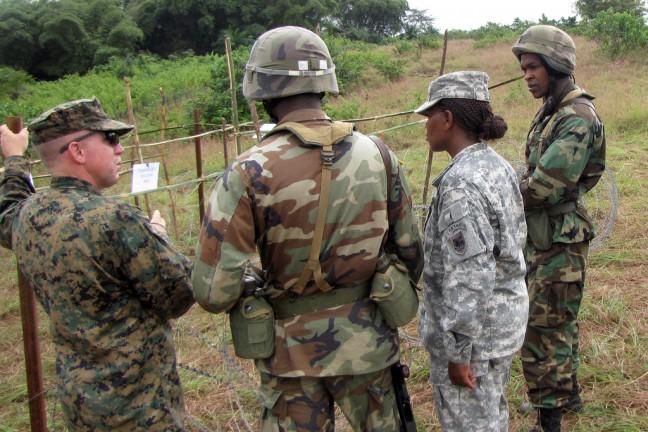The Veterans Outreach of Wisconsin is promising to step up its suicide prevention care for veterans across the state after receiving a 3-year grant from the U.S Department of Veteran Affairs. The $1.5 million dollar grant given to the state will be dispersed in yearly stipends, with a focus on expanding strategies to lower suicide rates among veterans before they are in critical condition.
Veterans are a societal group with historically above-average suicide rates. Data from 2018 shows that the number of veteran suicides per 100,000 was 28, compared to 18 among nonveterans. Nearly a quarter of the nation’s annual suicides are among veterans.
There are many reasons why former military members are significantly more vulnerable to experiencing suicidal thoughts, including increased rates of substance abuse, PTSD and other mental and physical illnesses.
This being said, veterans are not the only group suffering from high suicide rates. In 2020, suicide was the 12th leading cause of death in the United States. Wisconsin in particular considers suicide to be a growing public health issue, with rates increasing 40% between 2000 and 2017.
Police officer shortage amid violent crime crisis demands law enforcement reform
Our system as it stands today cannot keep up with these numbers. Calls to the national 988 suicide prevention lifeline increased 45% since relaunching on July 16, and the limited funding available to the resource has made it difficult to keep up with demand. Not only this, but the extreme levels of demand for aid are simply too high for national crisis management systems to provide individual care for every person struggling with suicidal thoughts.
Since the federal government cannot provide enough aid to those battling suicide, it is the responsibility of state and local systems to pick up the slack.
For its part, Wisconsin has taken the first steps to improve suicide prevention strategies for the state’s veteran population. These new, community-based initiatives being funded by the Veterans Outreach of Wisconsin include goals to increase public awareness about suicide risk factors, expand recognition of warning signs and direct individuals to the resources and support centers that are most qualified to help.
According to the Suicide Prevention Resource Center, social support and connections can help safeguard the risk factors of suicide. Similarly, in 2011, the CDC officially adopted social connectedness as a strategy for preventing suicidal behavior or thoughts. Curbing a struggling individual’s desire to isolate and fostering positive attachments between themselves and their community can be pivotal for improving mental health and strengthening one’s optimism or future outlook.
Law enforcement must take a backseat in Wisconsin’s response to opioid crisis
Wisconsin is improving its commitment to its veterans struggling with suicidal thoughts by recognizing the importance of creating an inclusive and knowledgeable community. But, veterans are not the only ones with a higher likelihood of experiencing suicidal thoughts or behaviors.
According to the CDC, other populations with higher than average suicide rates include rural communities, sexual and gender minorities and tribal populations. Not only this, but certain lifestyle habits and factors are proven to impact the likelihood of an individual experiencing suicidal thoughts. These include substance abuse or misuse, financial issues, unemployment, established physical or mental health problems and relationship issues can all be precursors to lethal behavior.
Community-based suicide prevention is one of the most effective and useful resources for individuals in need. Wisconsin has started this shift to prevention rather than reactionary treatment in its veteran population. Now, it is up to the state to use this momentum to expand its efforts to include other vulnerable groups that don’t have the access to positive social environments and resources.
Fiona Hatch ([email protected]) is a sophomore studying political science and international studies.




















